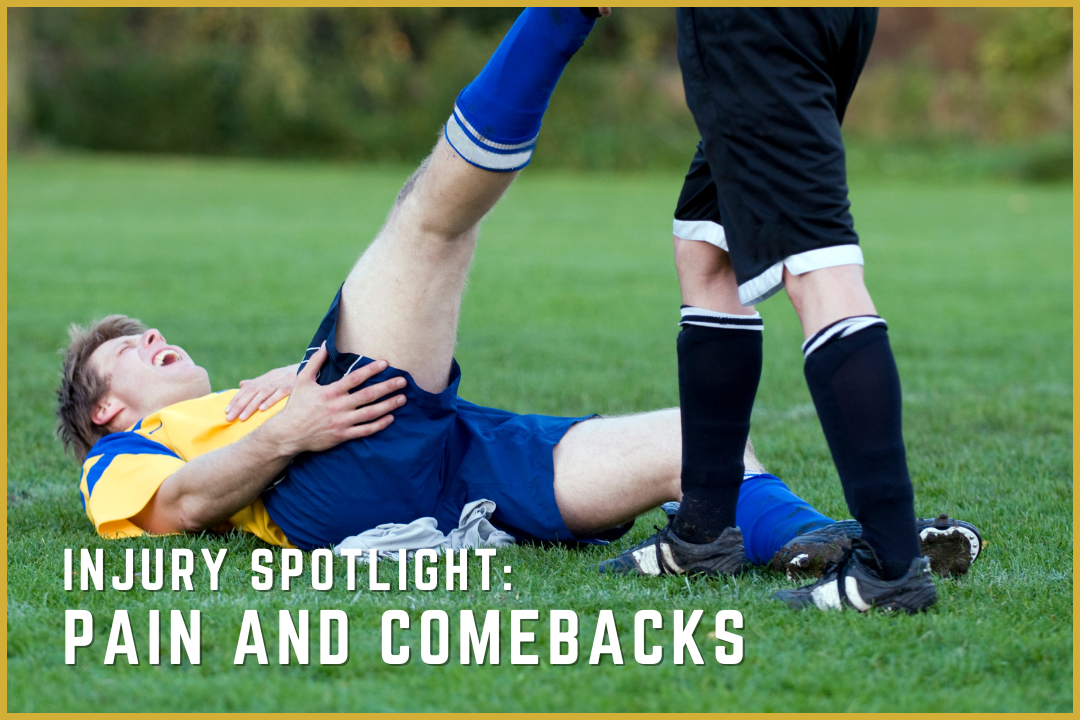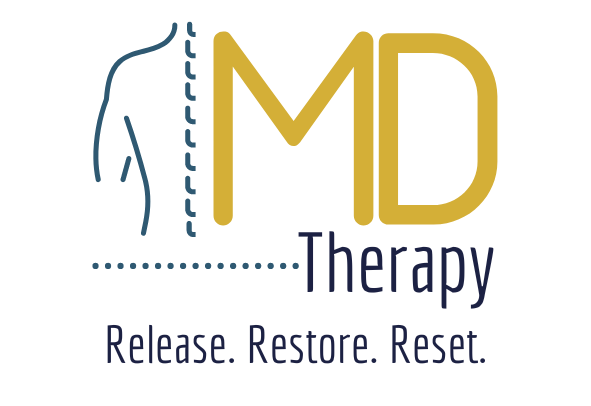The Untold Journey of Injured Athletes Reclaiming Their Game
By Marc Dinardo, Clinic Owner at MD Therapy UK, in collaboration with Barça Innovation Hub.
“The hardest hits don’t always come from tackles—prepare for all of them.”
In sport, we glorify the comeback. We talk about grit, resilience, the thrill of overcoming odds. But in the silence between the injury and the return to play lies the untold story—of self-doubt, frustration, grief, and an athlete wrestling with who they are without the game.
Whether you’re a rugby warrior forced off the pitch with a ligament tear, a striker battling post-surgery recovery, or a long-distance runner questioning their next step—this is your story too.
This is about the long road back. And the mindset that makes it possible.
🏉 The Day the Game Stopped
Dan Lydiate, a Wales and British & Irish Lions flanker, was no stranger to injury. But in 2021, disaster struck again: a serious ACL injury just as he reclaimed his international shirt after years of fighting back. Worse still, it happened days after the death of his father.
“I wanted to get back for my old man. It was definitely a real motivation.” – Dan Lydiate
Lydiate’s return wasn’t just physical—it was emotional. He wasn’t only rehabbing a knee. He was grieving, trying to honour a promise to his dad, trying to rebuild the man who wore the red jersey.
His story mirrors many athletes: pain on the surface, and pain beneath it.
🎁 Easter Offer – MOT Recovery Assessments:
Only 10 Spots Available.
Use discount code MOT40 to claim your MOT for only £117 today!
BOOK YOUR MOT NOW
🧠 Why Injury Hurts More Than Just the Body
When athletes get injured, fans often ask, “When will they be back?” But the better question might be, “Who will they be when they come back?”
Injury disrupts more than movement. It disrupts identity.
According to the Wylleman Holistic Model (2013), an athlete’s life is shaped by four interconnected domains:
- Athletic – development, performance, transitions.
- Psychological – self-awareness, resilience, maturity.
- Psychosocial – relationships with coaches, family, teammates.
- Academic/Vocational – education, career goals, financial pressures.
When an injury hits the athletic domain, the psychological, social, and vocational spheres often unravel too.
Imagine a young footballer at academy level, now missing games and drifting academically. Or a rugby player in rehab feeling distant from the squad, while battling fears of being replaced. Or a runner wondering if her scholarship will last through surgery.
These aren’t hypotheticals. They are weekly realities in every sport.
⚡ The Emotional Rollercoaster: From Anger to Acceptance
In the 1960s, psychiatrist Elisabeth Kübler-Ross identified five emotional stages people experience during grief. These stages—denial, anger, bargaining, depression, acceptance—also appear during injury recovery.
Athletes may:
- Deny the seriousness of the injury.
- Feel angry at themselves, the opponent, the pitch, the coach.
- Bargain—“If I work hard for two weeks, I’ll be back early.”
- Sink into despair.
- Then, gradually, begin to rebuild.
This is echoed by Petitpas & Danish (1995) who describe injury as a trigger for:
- Loss of identity
- Fear and anxiety
- Loss of confidence
- Reduced performance
The key is not to avoid these stages—but to move through them.
💬 “I Am Still an Athlete”
Thom Evans, former Scotland rugby international, knows this journey deeply. In 2010, he suffered a catastrophic neck injury during a Six Nations game that ended his career. Just 24 years old, everything he’d built came crashing down.
His response? A reinvention. He leaned into athletics, media work, and became a motivational voice for resilience.
“It’s not about how hard you hit back—it’s about finding meaning and strength when you can’t hit back.” – Thom Evans
Athletes can lose their jersey. But they don’t lose their drive.
🏃♂️ When Pain Doesn’t Stop You
During the 2012 Olympics, marathon runner Liu Xiang fell early in his heat after rupturing his Achilles. Most would have stayed down. Instead, he hopped the length of the track on one foot to cross the finish line. He didn’t win a medal—but he won global respect.
This isn’t to glorify suffering. It’s a reminder that the mindset that fuels greatness doesn’t disappear with injury—it adapts.
Similarly, Olympic badminton player Carolina Marín tore her cruciate ligament in 2019. With the support of psychologists, a custom rehab team, and goal-setting techniques, she returned stronger than ever.
“I cried, yes, but I didn’t give up.”
(Full story: El País)
🔧 Practical Recovery Tips from the Frontlines
Here’s how you can support your comeback—mind and body:
🧩 1. Create Structure
Build a daily routine around rehab, nutrition, rest, and hobbies. This reduces uncertainty and boosts motivation.
🥅 2. Set SMART Micro-Goals
Short, achievable goals help track progress and restore confidence. Celebrate each milestone—no matter how small.
🧠 3. Train Your Mind
Use visualisation, mindfulness, or mental rehearsal techniques to stay game-ready. Consider working with a sport psychologist.
🤝 4. Stay Connected
Don’t drift from your team or coach. Stay engaged, even if you’re on the sidelines. You’re still an athlete.
🎓 5. Explore Your Dual Identity
Use this time to develop academically, professionally, or creatively. Your injury doesn’t define you—it reveals more of you.
🫂 Your Support System Matters
The Wylleman model emphasises that recovery doesn’t happen in isolation. Family, friends, and coaches can play a huge role—either positively or negatively.
Dan Lydiate’s return was powered not just by physio—but by purpose. His father’s memory became the driver. For others, it’s a mentor, a partner, or a child. Know your “why,” and lean into your circle.
“Having the right people around you makes all the difference.”
— Common sentiment among elite recovering athletes
🔁 It’s Not Just About Getting Back—It’s About Coming Back Better
Injury isn’t a detour. It’s part of the journey.
And sometimes, it’s the moment where true greatness is forged—not in stadiums, but in quiet rehab rooms. Not in lifting trophies, but in learning who you are when you’re not competing.
“You are not broken. You are rebuilding.”
📣 Ready to Start Your Recovery Journey?
At MD Therapy UK, we understand that injury recovery is not just physical—it’s emotional, social, and psychological too.
That’s why our Wellbeing Team provides:
- Personalised physical rehab programs
- Mental resilience coaching
- Sport-specific return-to-play strategies
- Family and career transition support
We’ve partnered with the Barça Innovation Hub to stay at the cutting edge of athlete care and recovery. Our holistic model ensures you come back not just ready, but renewed.
📩 Contact us for a confidential consultation
📞 Call: 0141 260 9062
🌐 Book Consultation: https://mdtherapy.uk/consult/
🔗 Further Reading
- Dan Lydiate on Recovery and Grief
- Carolina Marín’s Mental Strength Post-Injury
- Wylleman Holistic Athletic Career Model
- Barça Innovation Hub: Athlete Recovery
🙌 Final Thought
Every athlete has a story. The comebacks, the breakdowns, the quiet moments of doubt.
What matters most is not how fast you return, but how intentionally you rebuild.
We’re here to support that journey—every step, every rep, every moment.
Your story’s not over. It’s just getting interesting.



